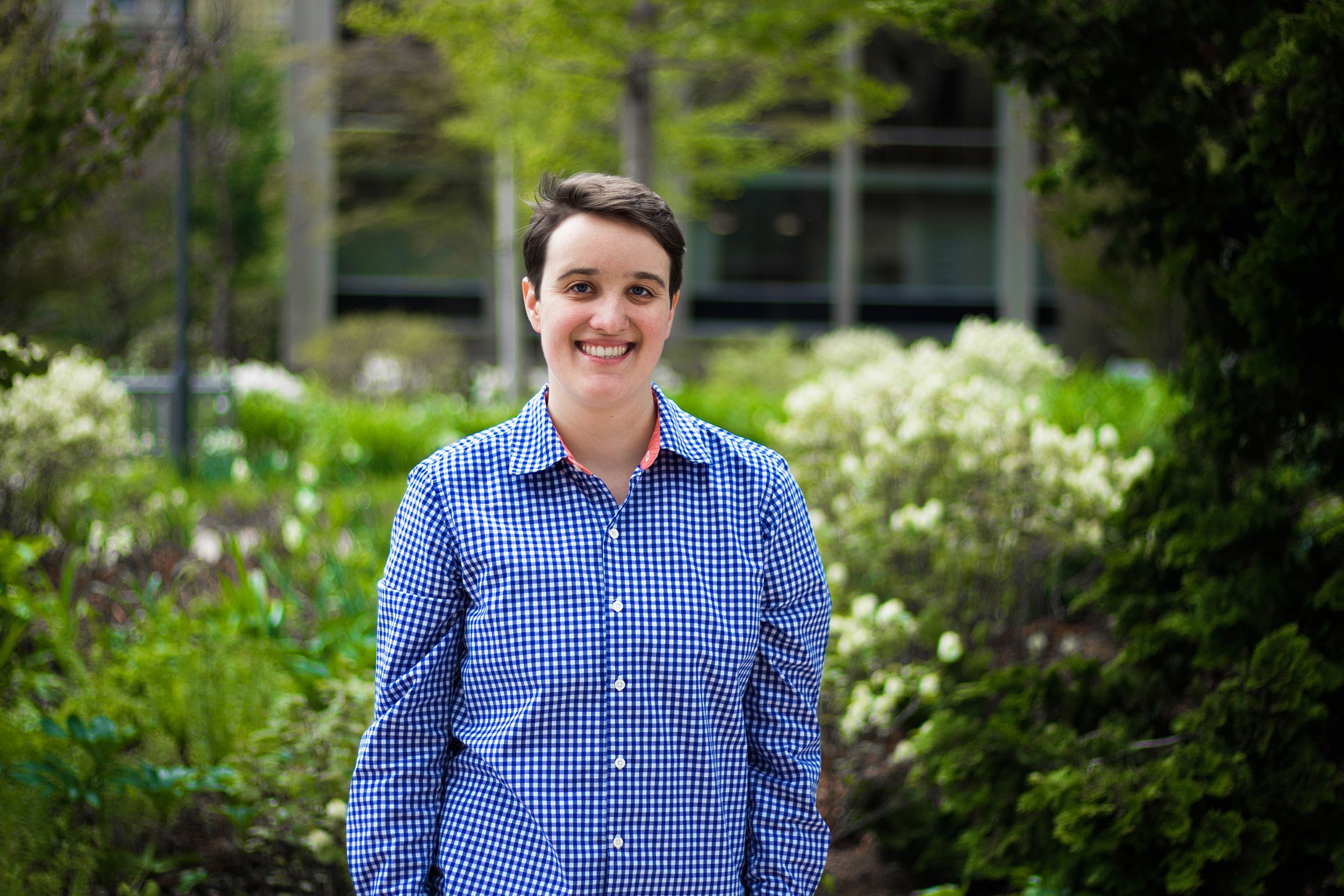Erika Johnson is this year’s winner of the David A. Grossman Exemplary Clinical Student Award. The award is named in honor of the late Clinical Professor of Law David Grossman ’88, a public interest lawyer dedicated to providing high-quality legal services to low income communities. The award recognizes students who have demonstrated excellence in representing individual clients and undertaking advocacy or policy reform projects.
Having contributed more than 2,000 hours of pro bono services to clients through the Harvard Legal Aid Bureau (HLAB), the Harvard Prison Legal Assistance Project (PLAP), and Project No One Leaves, Johnson is the embodiment of Grossman’s tireless pro bono spirit. She was chosen for her compassion in legal practice and for her contributions to HLS’s clinical community.
Her nominators at the Harvard Legal Aid Bureau recall one elderly client Johnson protected from homelessness. The client had been living in supportive housing for homeless elders for almost ten years, but after the facility went smoke-free he had trouble quitting and faced eviction. Over the next six months, Johnson attended more twelve court hearings, fighting tirelessly to stave off the eviction, but the client’s disabilities made it impossible for him to stop smoking. Realizing that her client had nowhere else to go, Johnson built a relationship with a social worker and found him an apartment with medical support services. Johnson even made sure to find him a bed and then physically moved it and most of the client’s other belongings into his new home on a cold winter’s day.
In another eviction case, Johnson followed her client’s lead in pursuing greater racial and economic justice. The client felt strongly that he had been wronged by his landlord, arguing the language used against him was racially biased. “Erika listened, at length,” said Clinical Professor Esme Caramello, who teaches in the Harvard Legal Aid Bureau. Johnson convinced the HLAB Board to take the case and then fully devoted herself to researching and drafting legal documents, achieving not only the dismissal of the eviction but also moving to recover damages for her client.
“Erika’s approach [was] creative, but it [was] her persistence in following the client’s lead despite the ‘typical’ trajectory of such a case, and the steadiness of her hard work, that have impressed us the most,” her nominators wrote.
“I am grateful to the Harvard Legal Aid Bureau for its support and its embodiment of the values David Grossman modeled as a teacher and lawyer,” said Johnson. “Dave’s compassion, dedication, and commitment to community and to our clients are inspiring to every member of HLAB. I feel honored to have been part of this community, and I will rely on this experience and these values in all of my future work.”
On campus, Johnson has also collaborated with the Harvard Law Entrepreneurship Project, a student practice organization that hosted a competition in which students created technology solutions to access to justice problems in the local housing courts. She met with the student leaders of the project, taught them about the court system and the challenges unrepresented tenants face, trained them in basic eviction law and procedure, and then judged the final projects. Her nominators noted that she did this expertly and almost entirely on her own — all as a second-year law student with a full course load and a substantial docket of housing cases.
After graduation, Erika will pursue a career in public interest law, a choice that she says was shaped by her HLAB clients and colleagues.
